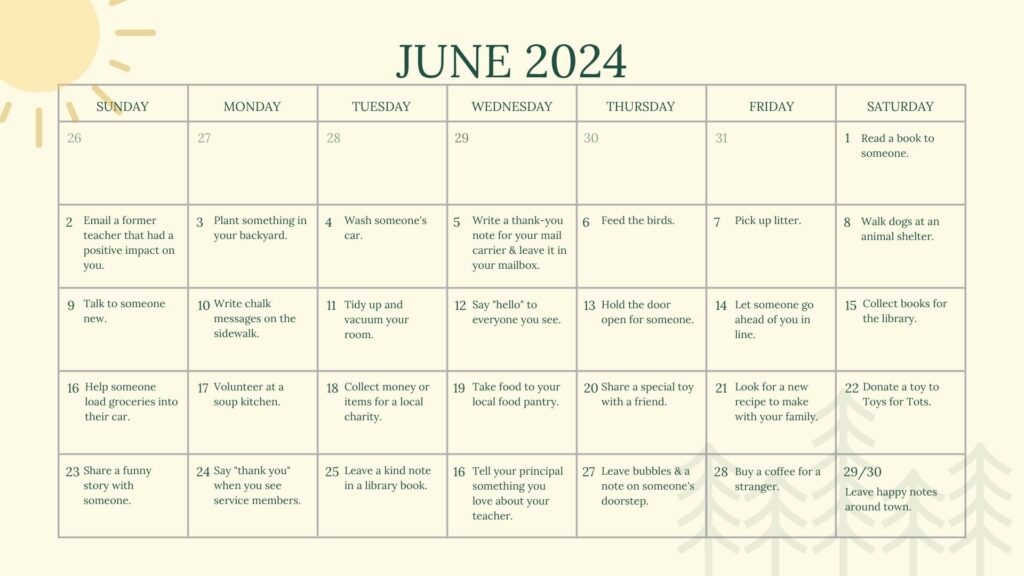October Kindness Calendar
The new month means we have new ideas of ways to be kind to those around you! We hope these ideas fill your bucket as you fill others’ buckets. You can download and print out your own October Kindness Calendar here. Happy October!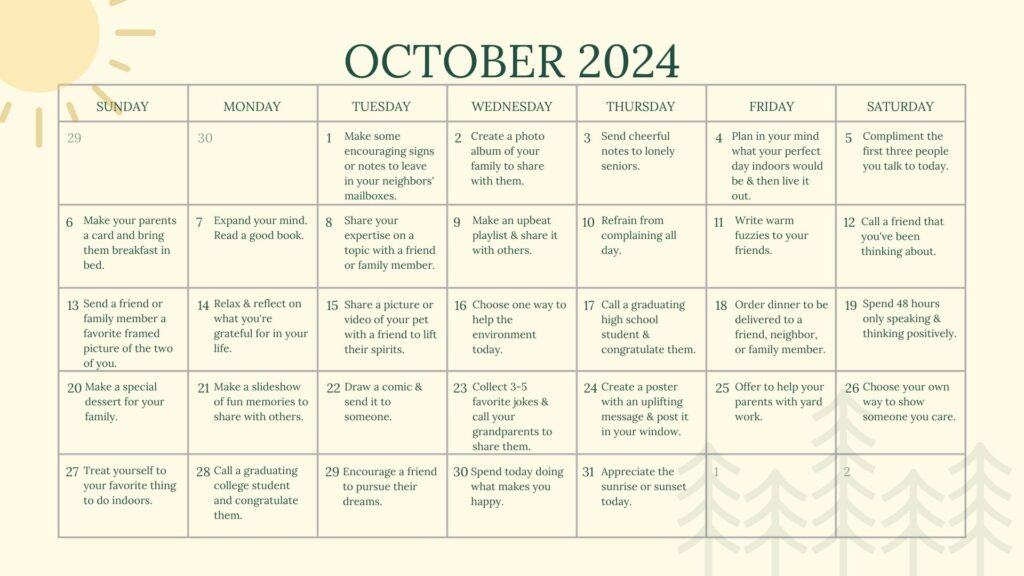
September Kindness Calendar
Happy September from Gold Arrow Camp! This month, we’re continuing to celebrate kindness with our September Kindness Calendar. Follow the prompts each day and practice kindness wherever you go! You can download and print out your own September Kindness Calendar here.
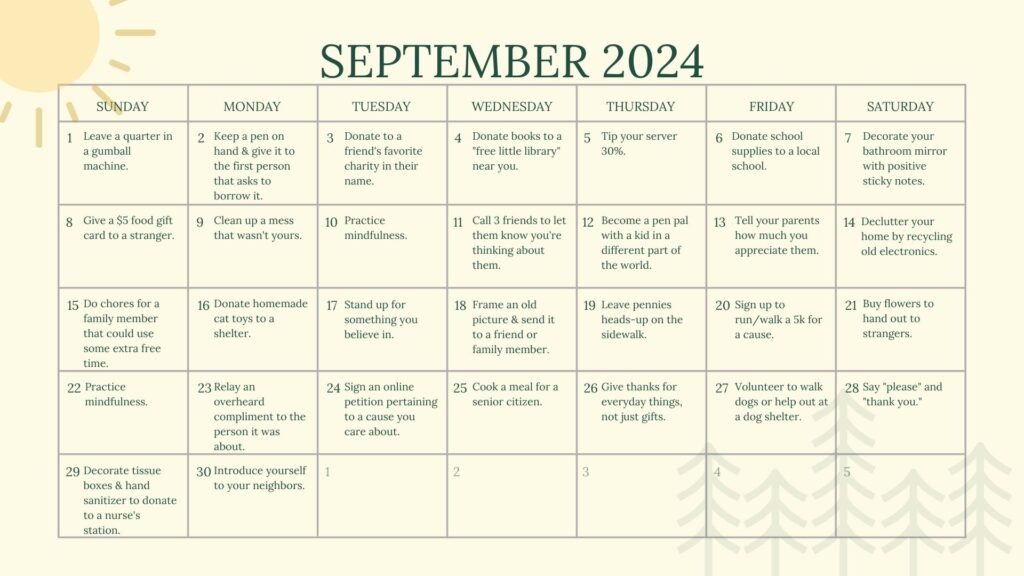
August Kindness Calendar
Happy August! We have loved spreading kindness and want to keep it going. Enjoy these kindness tips and feel free to download and print the calendar here.
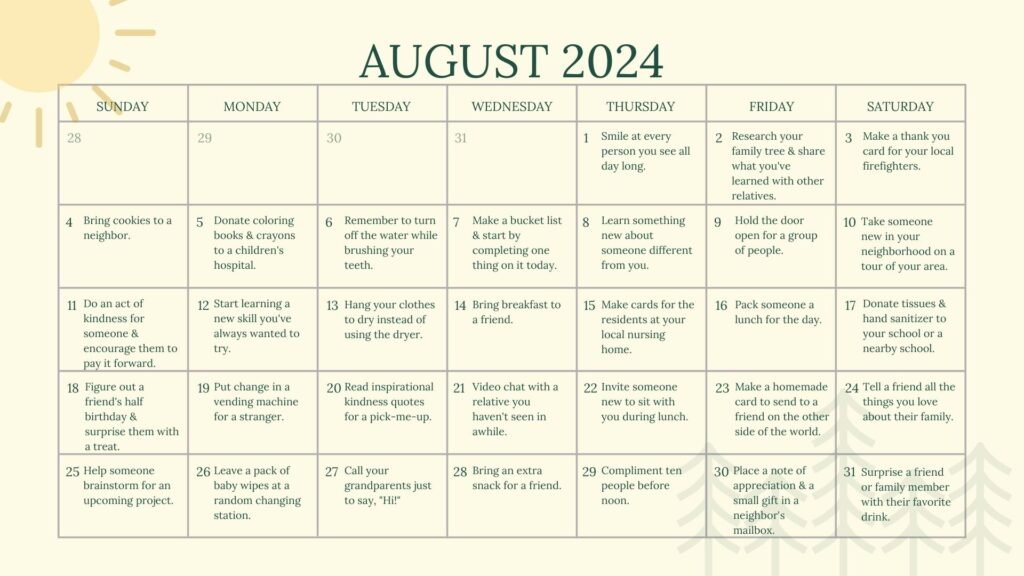
2025 Dates & Rates
Check out our 2025 Dates & Rates and see what session is going to work best for your camper for next summer. Returning families may enroll campers (including siblings who are new to GAC) starting on August 1, 2024. New families are welcome to register campers starting on September 16, 2024.

Session 4 Outpost & Events Schedule
There’s always something going on at camp, whether that’s a cabin theme day, a backpacking trip or a visit to Shaver Island! Check out the outpost schedule below to see where each cabin is going this session.
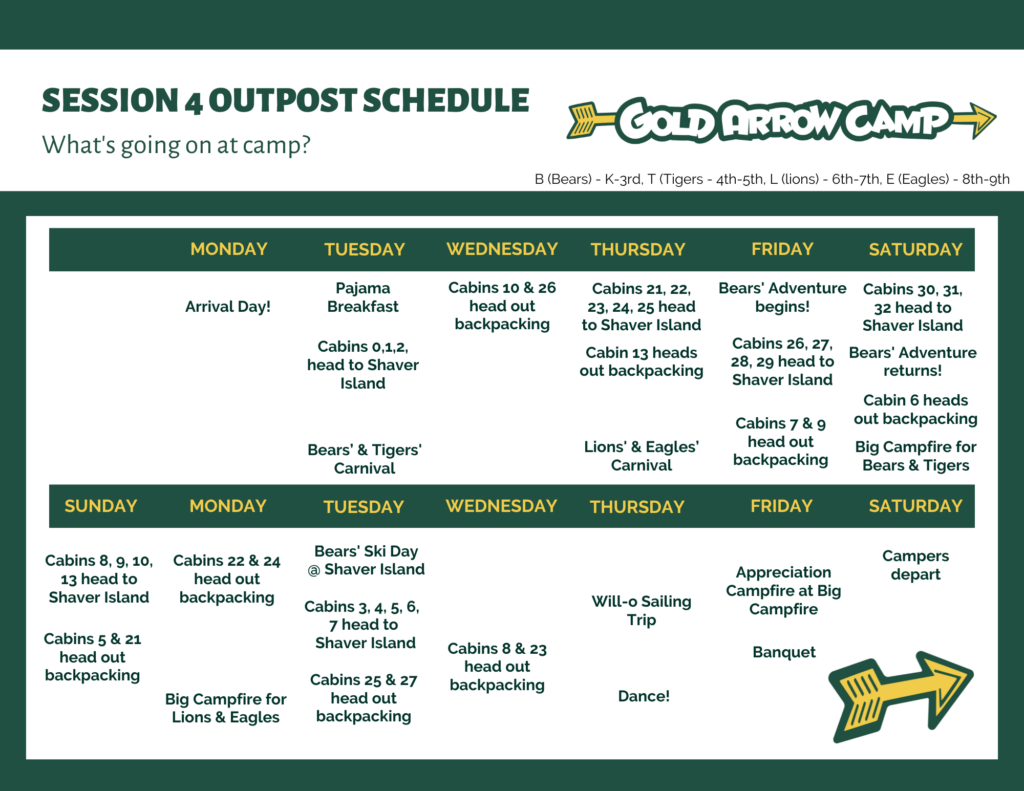
Session 2 Outpost & Events Schedule
There’s always something going on at camp, whether that’s a cabin theme day, a backpacking trip or a visit to Shaver Island! Check out the outpost schedule below to see where each cabin is going this session.
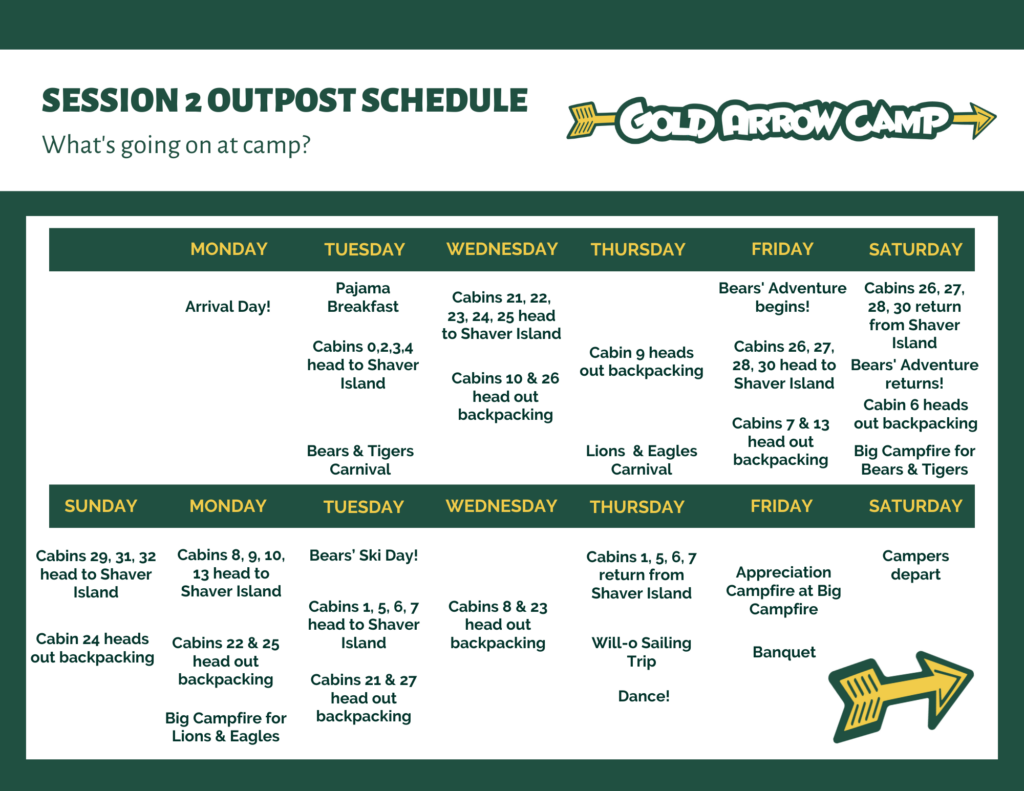
July Kindness Calendar
July 16th is Camp Kindness Day, so we are getting you ready with our July Kindness Calendar! We encourage you to show kindness to someone every day and we came up with a few ways to help you do that! Click here to download the printable version.
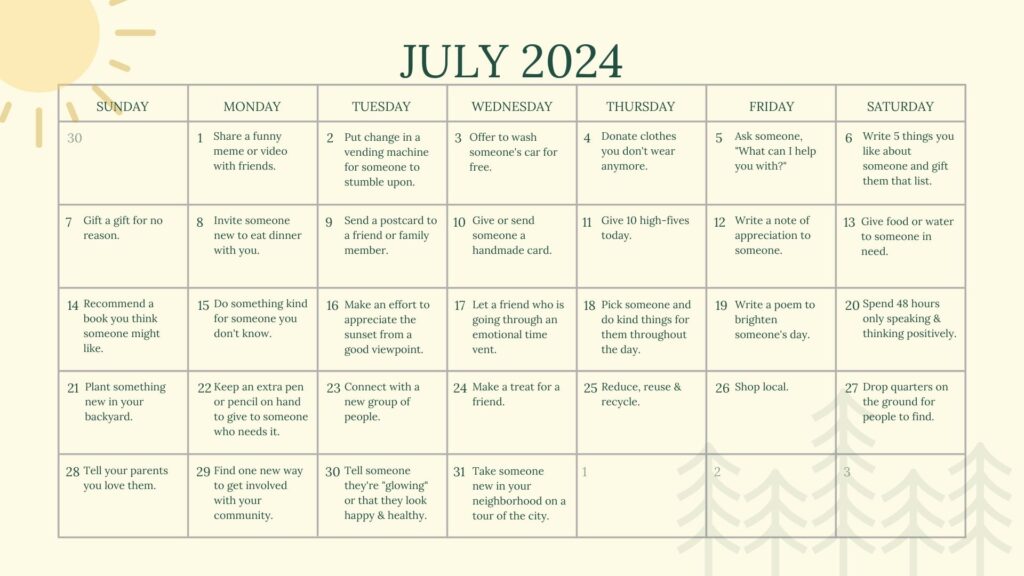
Session 1 Outpost & Events Schedule
There’s always something going on at camp, whether that’s Jers-day Thursday, a backpacking trip or a visit to Shaver Island! Check out the outpost schedule below to see where each cabin is going this session.
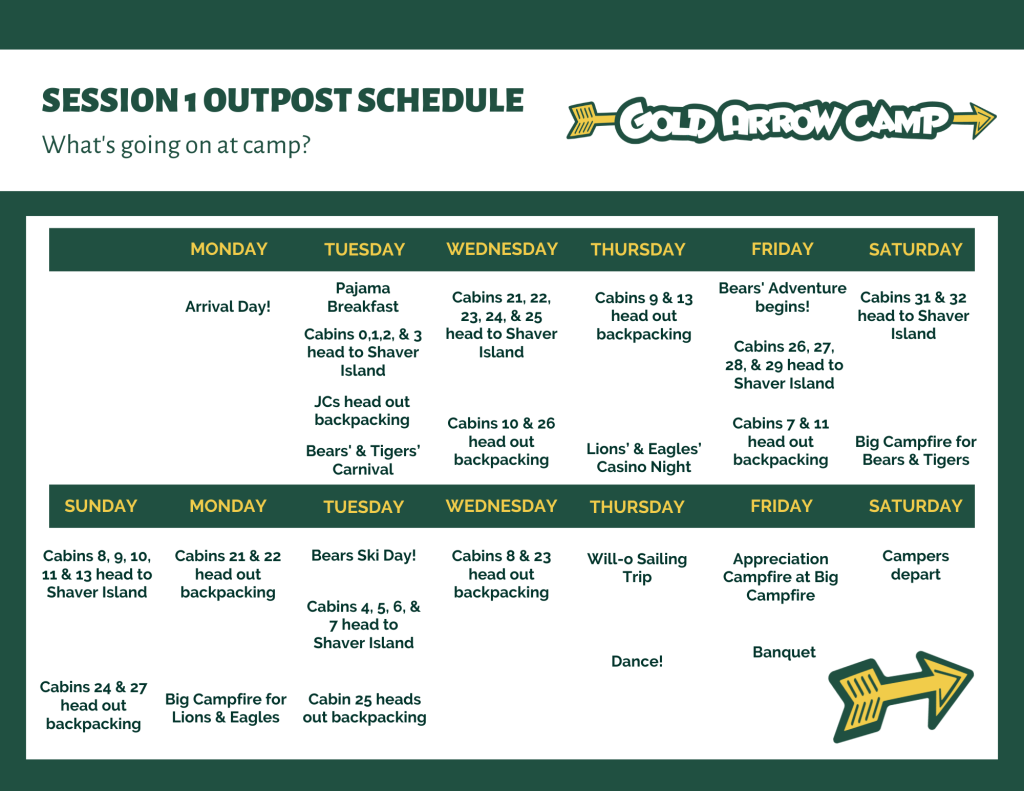
Session 1 Plus – Shaver Week Has Begun!
Yesterday, we welcomed an awesome group of campers for Session 1+, which starts with a week at our Shaver Island Outpost camp. Among this group of campers, there are ten 6-year campers, two 5-year campers, and one 10-year camper. Four campers are from outside of California.
They’re going to enjoy an action-packed week of waterskiing, wakeboarding, and kneeboarding on our island outpost in the middle of Shaver Lake. They will get to sleep under the stars after spending fun-filled days on the lake! How lucky they are!
Want to learn more about June Specialty? Click here.
June Kindness Calendar
Happy June and the start of GAC 2024! Here are some great ideas of how we can be kind to others this month. Enjoy! You can download a printable version here!
